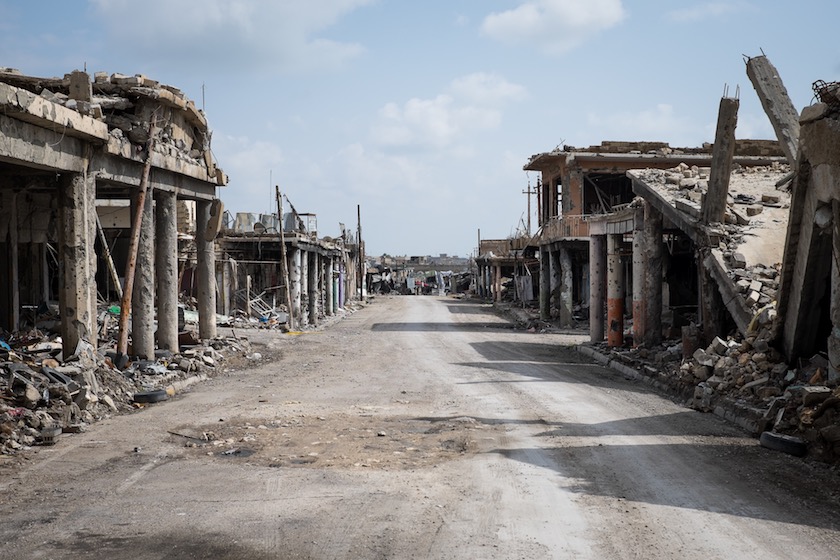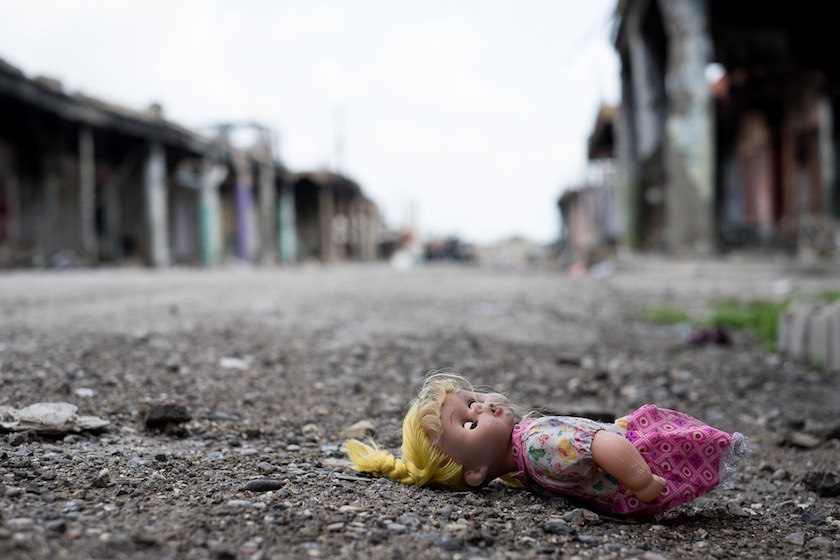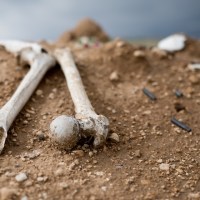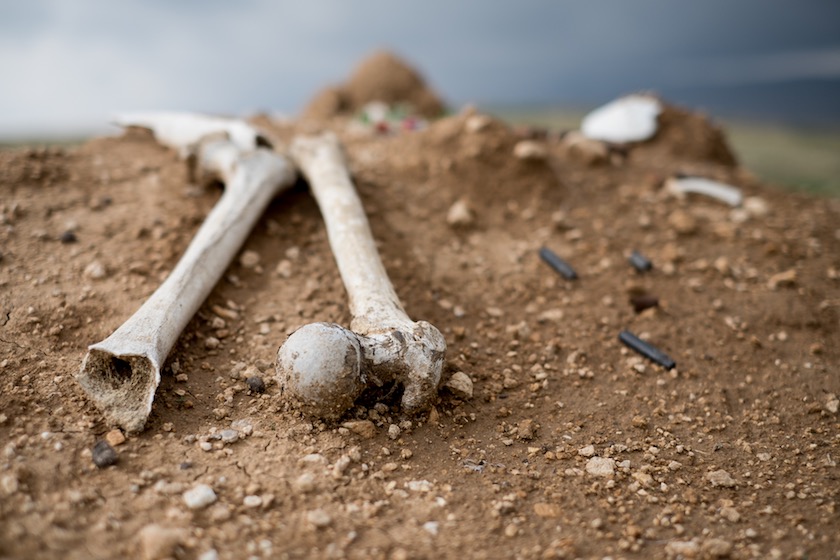This morning, US Secretary of State John Kerry labeled atrocities committed by ISIS as an act of genocide. His statement came four days after the US House of Representatives passed Concurrent Resolution 75, affirming such a label. The resolution passed with rare bipartisan support; more than 200 representatives from both political parties signed on as cosponsors.
Granted, resolutions condemning ISIS are not exactly a political football. But this resolution is significant, both for the words it used and how it used them.
What matters about this declaration is that it speaks up for several persecuted groups in Iraq, not just one.
I was in Washington, D.C. last month and several times in the fall of 2015, as a draft of Resolution 75 was making its way through committee in Congress. I met with Congressman Jeff Fortenberry (R-Nebraska), the resolution’s author, briefing him and his staff about the situation in Iraq, from my vantage point of a decade living here and serving those who are targets of hatred and violence. It is time for our government to sit up and take notice of the suffering of Iraq’s people—all of them.
Many of the legislators signing onto this resolution were originally spurred to do so out of concern for the persecution and plight of the dwindling Christian minority, and for good reason. When ISIS swept into Mosul two years ago, “people of the cross” were famously given four choices: leave, convert, pay a “protection” tax, or die. Mosul has been home to a small yet vibrant community of Christians for over a millennium. Today it’s thought that none remain.
But Christians—my people—are not the only ones being targeted by militants in Iraq.

When ISIS swept into Sinjar, near the border with Syria, local Yazidis were given only two options: convert or die. That was it. And even conversion was no guarantee of safety. In the eyes of ISIS, simply being born Yazidi is an abomination, an offense punishable by death. Hundreds of men and boys were gunned down and buried in mass graves. Women and girls were carted off into slavery. Thousands of Yazidis are still missing.
Our team was just in the destroyed city of Sinjar, Iraq. Recently liberated, Sinjar is still within eyesight of explosions from chemical weapons launched by ISIS. We’ve seen the devastation wrought by those seeking to exterminate the Yazidi people. We’ve stood and wept over newly uncovered graves. We saw the ground littered with clothes and prayer beads that were clutched by terrified Yazidis in their final moments of life. We walked the bombed-out, booby-trapped streets of Sinjar city—streets that are gutted and desolate, still too dangerous for anyone to return home.
We have seen the effects of genocide first hand.


There are other groups who find themselves in the crosshairs as well. Turkmen. Kurds. Sabea-Mandeans. Shia Muslims.
We are called to stand with all the persecuted peoples of Iraq, not just those who look like us or share the same faith as us.
We are called to resist dehumanizing any vulnerable or vilified group, knowing that when we allow others to be made “less than” in our eyes, it becomes easier to rationalize acts of violence against them, even acts of genocide.
That’s why it matters, in a majority-Christian nation like America, spurred on by Christian lawmakers, that we acknowledge the plight of several targeted groups, not just Christians.
But it also matters when and how we use the term genocide.
“Genocide… impoverishes the entire human race.”
Gregory Stanton, a research professor at George Mason University, believes there is a correlation between our willingness to use this term and our willingness to act. “The reason why it is so powerful,” according to Stanton, “is that genocide actually means the destruction of a people. [It] impoverishes the entire human race.”
Unlike some categories of violence, genocide is directly addressed by international law. In 1948, the UN General Assembly adopted a resolution defining genocide as acts committed “with intent to destroy, in whole or in part, a national, ethnical, racial or religious group.” This can include killing, but also includes acts designed to inflict physical or mental harm, or impose conditions meant to make life unbearable for the targeted group.
By this definition, both Christians and Yazidis, as well as other groups in Iraq, have been targets of genocide.
The “genocide” label gives much-needed priority to these groups, especially in terms of resettlement and protection. It demands that we act instead of turning our attention to other, less troubling matters.
True, words alone do not guarantee action—much less the right kind of action. But atrocities like the Holocaust and the Rwandan genocide remind us that there is a high cost to pay if we fail to name this especially dehumanizing form of violence for what it is: violence that unmakes entire groups of people.
Words matter. The right words, spoken at the right time, can change our view of the world. They can mobilize nations. They can help those who’ve been persecuted by ISIS to reclaim their humanity. Our words can be the first step toward unmaking violence.
Unmake violence with us. Join the coalition.


